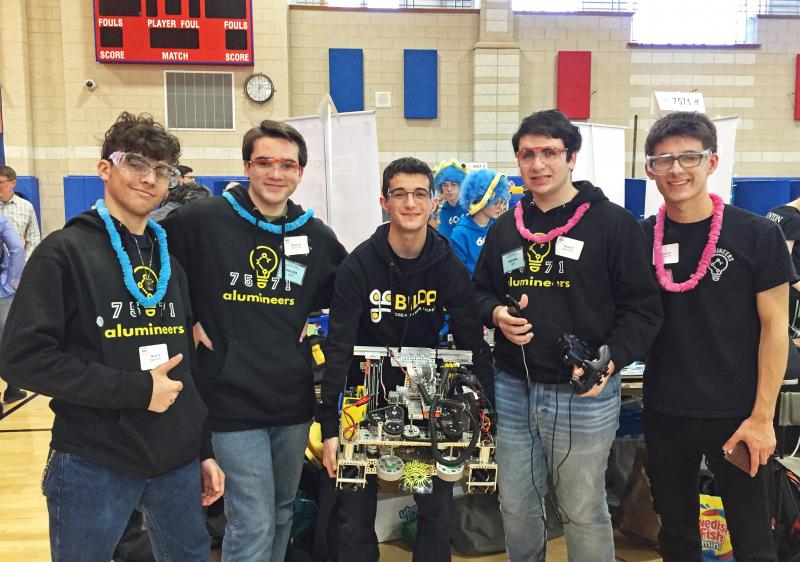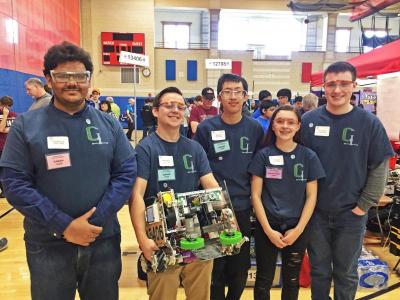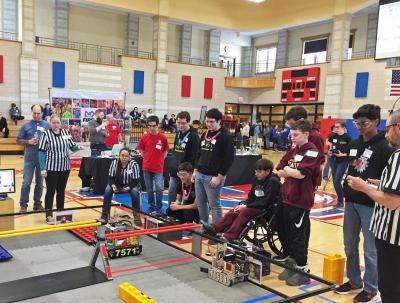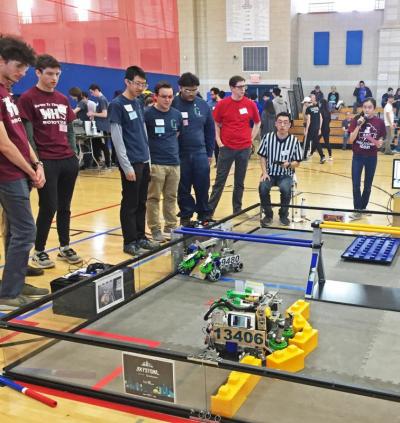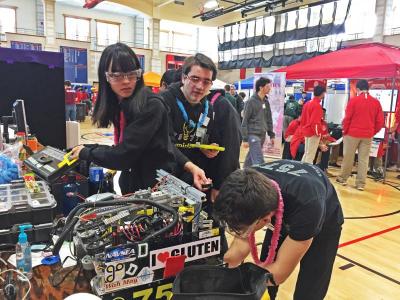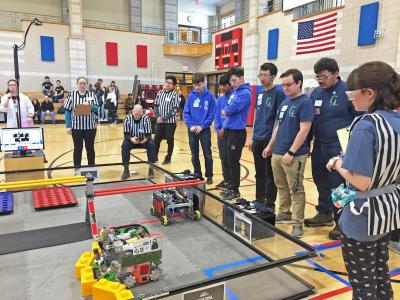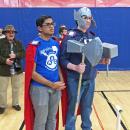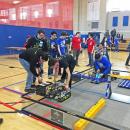Go go gadget: Robotics club took states by storm, nearly made it to worlds
Despite the high stakes, the tone was friendly — even cooperative — at this year’s First Robotics First Tech Challenge state tournament, which saw Dartmouth High’s two robotics teams trying for a chance to enter the world championship in April.
36 of the best teams from all over Massachusetts came to Natick High School on Saturday for the competition after winning rounds of qualifiers earlier this year.
Although they didn’t make it through to worlds, both of Dartmouth’s teams finished in the top third at the tournament.
The Alumineers finished in 12th place and Consistently Inconsistent finished 6th, making it all the way to the semi-final.
The games involve robots moving blocks to specific locations, first without any input from the programmers for 30 seconds in an autonomous round, and then for two minutes with the teams controlling the bots.
Each team played five matches in randomized pairings with another team in an alliance against two others.
Between their matches, the teams — many in costumes or team shirts — tweak their bots and practice moving blocks in an area set aside for the purpose.
At the end of the day, the four teams with the best scores got to choose alliances with two teams for the knockout rounds.
“There’s a lot of horse trading that goes on, where you’re trying to figure out what teams are best at what — what teams would be best to work with you, or against you,” explained faculty advisor Sam Brodsky. “And also, these are all randomized, so you’ll play with this team here, but then later you might play against them.”
“It’s a lot of strategy,” he added.
Dartmouth’s teams will also be remembered for another achievement at the tournament, as the robotics club’s Information Officer William Fang created a system to collect and share data from each match during the tournament.
“Right now, we’ve got about a quarter of the teams at this competition, and we’re recruiting more,” said Fang before lunch.
The information helped teams find others’ strengths and weaknesses to determine which teams to choose for alliances — and Fang made it publicly available.
But free and open data sharing is not only representative of robotics community values, it’s also just what happens among friends.
Nick McMaster, co-captain of the Alumineers, noted that they knew both of the teams they lost to in their first match. “We knew it was gonna be a tough match,” he said. “We’re friends with both of [the other teams].”
“They’re actually all friends outside of this,” said Brodsky. “Despite the fact that they live in different parts of the state, they all hang out together.”
“A big part of this for them is meeting other people who like the same stuff they do,” he added. “And getting to widen your perspective.”
As for the leis, McMaster said, there’s a reason behind them.
“Sophomore year, we went to a qualifier where they gave out leis, and it was one of our favorites. And Nick and I — the other captain — kept our pink leis and we just wore them until they broke,” he said. “So then I was like, ‘You know what? I’m just gonna buy them.’”



